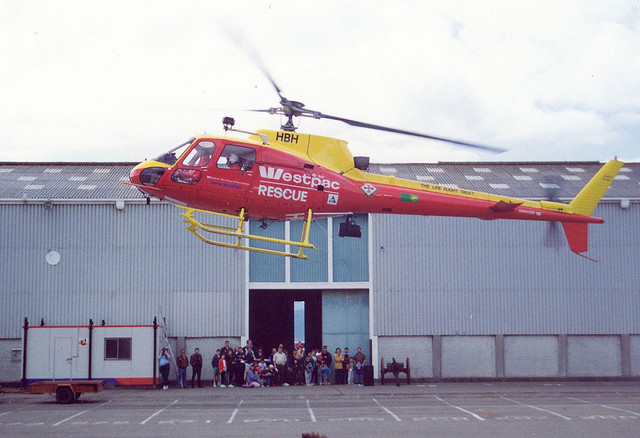Farming GPS moves to search and rescue

New Zealand GPS tracking company TracMap has found a new industry for its GPS tracking devices, after realising that it could be of use for more than just farming.

(Lifeflight Trust Westpac Rescue Helicopter image by 111 Emergency, CC BY 2.0)
The company is the largest provider of GPS technology to the agricultural sector in New Zealand, for which it first created its products, but, after just five years in the industry, it realised that its products could assist other industries.
"Originally, the company was developed around fertiliser spreaders and trucks working in hill country in New Zealand. They were designed to be rugged and robust, as the drivers of fertiliser trucks essentially have quite a demanding job, with heavy loads on the back and drive in places that you probably shouldn't drive," said TracMap general manager Grant Gibson.
TracMap, which develops both the hardware and software of the GPS tracking and navigation devices, realised that the devices could be used for the aviation industry due to their rugged design, and, after expanding the company towards that industry, was approached by Auckland Westpac Rescue to assist in improving its search methodology.
"If you've got a drop point where you think the most-likely location of the person in the water is, it allows you to select the flight pattern that has the best chance to actually find that person. It relays that information, displays it on the screen, but it also relays that information to what we call a lightbar," he said.
The lightbar is a navigational aid that TracMap developed, which sits just below the pilot's field of vision and guides them based on a series of lights to let them know if they are drifting off course, and where they should go next.
"Auckland rescue believe that they are saving 50 per cent in search time. One of the main reasons for that is that when they come back to refuel after a search [under the previous system], they'll actually have a look at the flight track that they've flown. They'll notice that they've missed an area, or that they haven't completed [an area] fully, and they've got to go back and re-fly a lot of their previous work."
"This is a new market for us, and [although] we've just started into it, we think it may actually surpass the agricultural side of our business," Gibson said. "We sort of stumbled onto it by osmosis, really."
The company has taken out the Global Security Challenge's Small and Medium Enterprise Award for the Asia-Pacific region at the Security 2011 Exhibition and Conference this week, presenting on how it stumbled across a new industry to apply its GPS tracking service.
TracMap will continue on to the final Global Security Challenge in London, which will pit the award winners of their respective regions against each other to compete for up to US$500,000 in prize grants.
"We're quite confident," Gibson said. "There's a lot of great companies doing some fantastic stuff, but we've picked a small target niche and developed a pretty unique product that seems to be pretty well accepted."